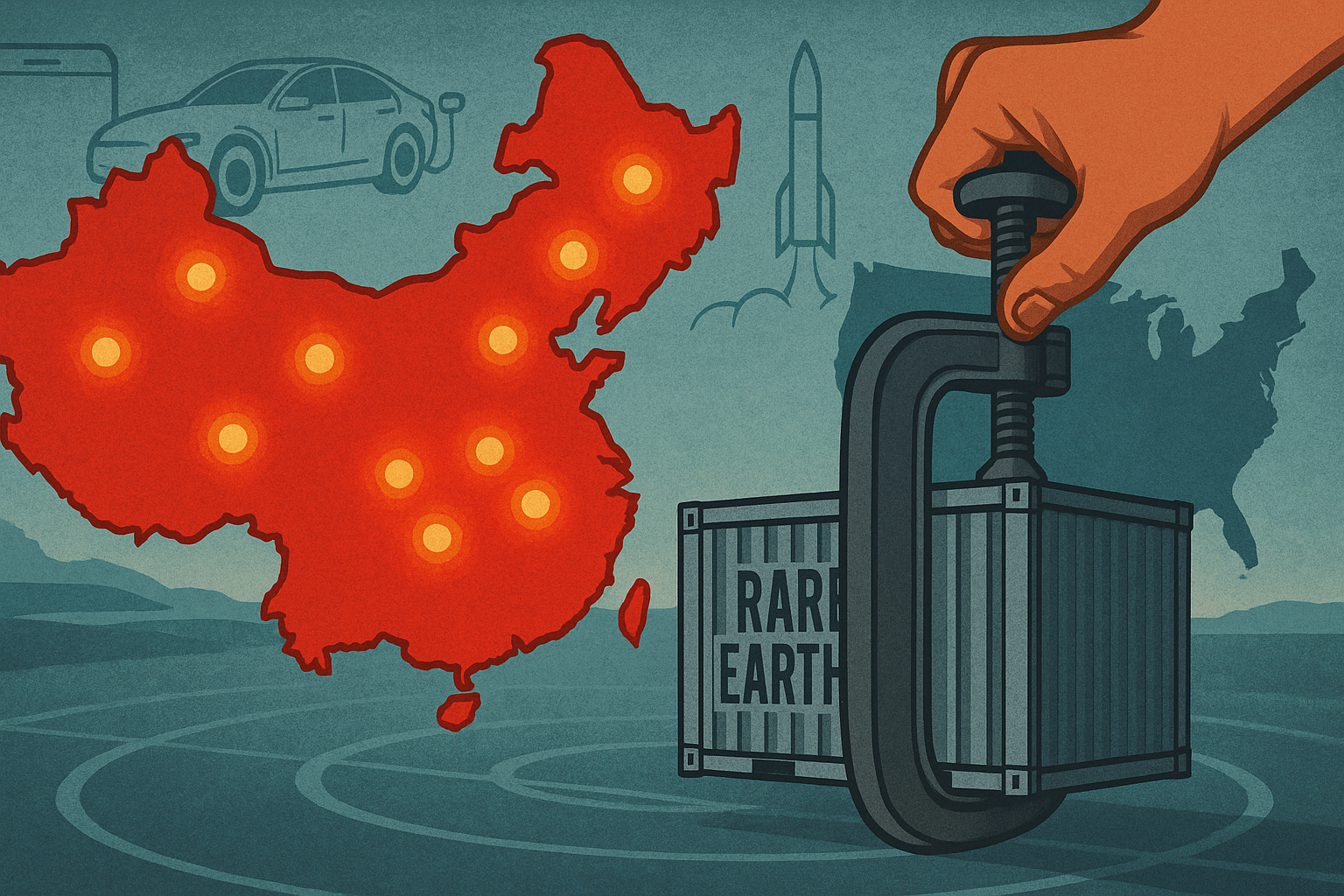In the latest chapter of what's becoming an exhaustingly predictable economic soap opera, China and the United States are at it again—trading barbs and threats that could reshape global supply chains and send markets into tailspins.
China announced Sunday it isn't "afraid" of a trade war with America. Bold words from Beijing, though perhaps less impressive when you consider they've been rehearsing this particular diplomatic dance for years now.
What's new this time? Rare earth minerals—those obscure elements with unpronounceable names that somehow end up in everything from your smartphone to missile guidance systems.
China just slapped export controls on these critical resources, prompting the inevitable American outrage. The Commerce Ministry spokesperson in Beijing called out what they see as America's "textbook double standard" in trade policy, which, if we're being honest, isn't entirely without merit.
I've been covering Sino-American trade disputes since before they were cool (circa 2018), and there's something almost comically hypocritical about watching both nations accuse each other of unfair play. It's economic "I'm rubber, you're glue" on a geopolitical scale.
Let's get something straight about these "rare" earths—they're not actually all that rare in the ground. What's rare is finding them concentrated enough to mine profitably, and more importantly, having the processing infrastructure to make them useful. China's spent decades building that capacity. Smart move on their part, frustrating as it may be for everyone else.
Today, they control about 85% of global processing. That's not just market dominance; that's a chokehold.
And Beijing knows it.
These minerals matter because, well, modern life depends on them. Your electric vehicle? Needs rare earths. Military hardware? Same story. The device you're reading this on? Yep, couldn't exist without them.
So when China restricts exports, they're essentially holding a very specific gun to the head of global manufacturing. It's targeted pressure—precision economic warfare compared to America's preferred approach of broad-based tariffs that spread pain across entire sectors.
The timing here isn't coincidental. China didn't wake up one morning and decide to flex its resource muscles for fun. This is a direct response to American restrictions on semiconductor exports and other advanced technologies. The message is crystal clear: "You won't sell us your fancy chips? Fine. Good luck making them without our materials."
(They've played this card before, by the way. Just ask Japan about their 2010 experience when a diplomatic spat led to China suddenly "discovering" it needed to limit rare earth exports.)
The double-standard accusation cuts both ways. America has long championed free markets and open trade—right up until it doesn't serve American interests. Meanwhile, China embraces capitalism when convenient while maintaining iron-fisted state control over strategic sectors.
Both countries are playing the same game while complaining the other isn't following rules that neither fully respects.
What does this mean for markets? Short term: volatility, especially in tech manufacturing. Long term: a dramatic reshuffling of supply chains as companies desperately seek non-Chinese sources.
Countries like Australia, Canada, and Vietnam with their own rare earth deposits are about to become very popular at international investment cocktail parties.
The irony? Trade restrictions rarely achieve their intended goals. Instead, they just redraw the map, creating new dependencies and vulnerabilities.
What fascinates me is how both Washington and Beijing publicly puff their chests about being "unafraid" of trade wars while simultaneously scrambling to address obvious weaknesses in their supply chains. It's like watching two boxers trash-talk before a fight while frantically trying to patch holes in their defenses.
Look, the deeper pattern reveals something fundamental about our global economy: those interconnections that economists once praised as peace-promoting stabilizers are now viewed as dangerous vulnerabilities by national security types.
Having spoken with trade officials from both countries over the years, I can tell you the rhetoric doesn't match the private anxiety. Nobody wants full decoupling—the economic damage would be catastrophic—but neither side wants to appear weak by acknowledging their dependency.
So we're left with this awkward dance. China needs American markets. America needs Chinese materials. Complete separation is economically impossible despite the tough talk.
Where does that leave us? In economic limbo, probably for years to come.
Expect more targeted restrictions, more retaliatory measures, more market volatility... but don't expect fundamental changes to trade flows overnight. That's not how this works.
The transition we're witnessing isn't from globalization to isolation—it's from economic integration based on efficiency to fragmentation based on geopolitical alliances. Call it "friendship-shoring" if you want to sound clever at dinner parties.
And honestly? We should have seen this coming decades ago. The assumption that economic ties would inevitably lead to political convergence was always more wishful thinking than sound theory.
The game continues. The stakes get higher. And both sides will keep insisting, with straight faces, that they're the reasonable ones.
Some things never change.
